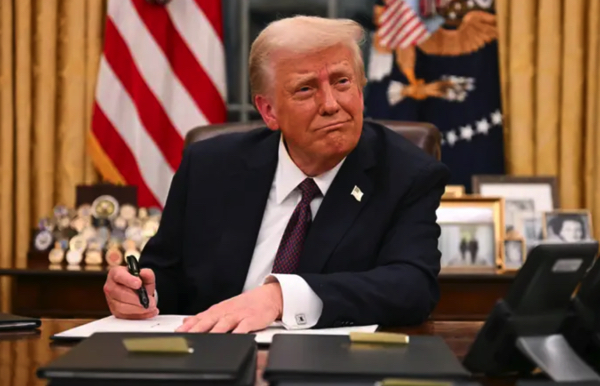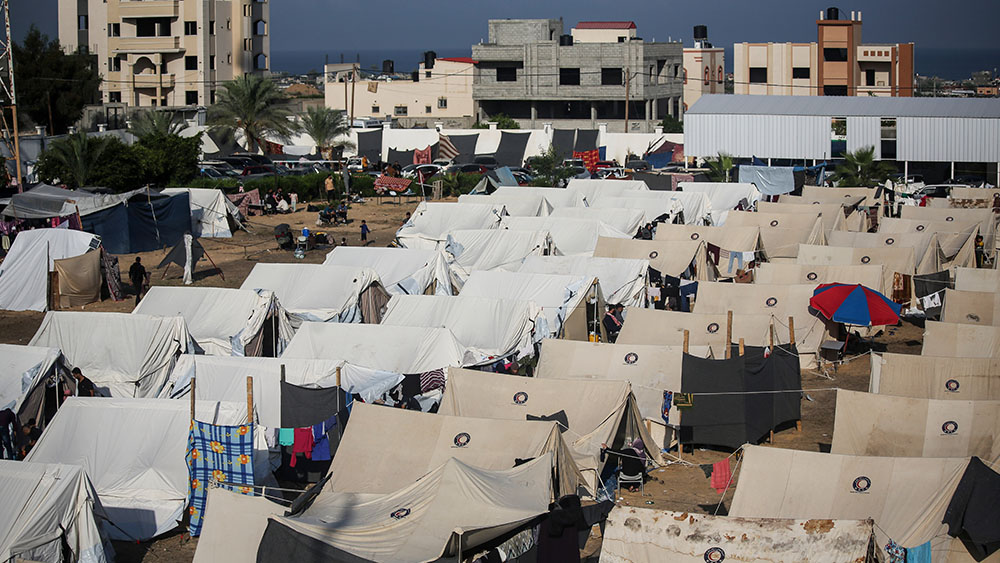 Parler
Parler Gab
Gab
- Trump's new travel restrictions took effect June 9, barring entry from 12 nations and limiting visas for seven others over security concerns.
- The policy cites high visa overstay rates, terrorism risks, and uncooperative foreign governments as justification, replacing a controversial 2017 ban.
- Full entry bans target Afghanistan, Iran, Libya, Somalia, and others, while countries like Venezuela face visa category restrictions, with exemptions for current visa holders.
- Critics, including the African Union and refugee groups, call the ban discriminatory, while the administration defends it as a targeted security measure.
- Unlike the chaotic 2017 rollout, this ban was structured to avoid legal challenges.
A targeted approach to national security
Unlike the chaotic rollout of Trump’s first-term travel ban, this proclamation was carefully structured to withstand legal challenges. It imposes a full entry ban on citizens of Afghanistan, Chad, Eritrea, Haiti, Iran, Libya, Myanmar, Somalia, Sudan, Yemen, and the Republic of the Congo. Meanwhile, Burundi, Cuba, Laos, Sierra Leone, Togo, Turkmenistan, and Venezuela face restrictions on specific visa categories, including tourist, business, and student visas. The order explicitly exempts those already in the U.S. with valid visas, but new applicants from the listed nations will face near-total rejection unless they qualify for narrow waivers. The administration argues this is not a blanket ban but a targeted measure based on each country’s compliance with U.S. security standards.Overstay rates and noncooperation drive restrictions
Central to the administration’s justification are alarming visa overstay rates and foreign governments’ refusal to repatriate deportees. For example, Chad had overstay rates as high as 55% in 2022 and 2023, which the proclamation called “unacceptable” and indicative of “blatant disregard for United States immigration laws.” Similarly, Haiti’s inclusion was tied to an influx of illegal immigrants creating risks of “criminal networks and other national security threats.” Iran and Somalia were flagged due to terrorism concerns, while Afghanistan’s Taliban-controlled government was deemed incapable of proper vetting. Despite the administration’s security rationale, the ban has drawn sharp backlash. The African Union Commission urged the U.S. to adopt “a more consultative approach." The International Refugee Assistance Project went further, accusing Trump of weaponizing immigration laws to target disfavored groups.A quieter rollout, but lingering tensions
Unlike the 2017 travel ban, which triggered airport protests and legal injunctions, this rollout was relatively smooth. However, travelers from non-banned countries still reported heightened scrutiny. Vincenta Aguilar, a Guatemalan tourist, described undergoing three separate interviews at Miami International Airport before being admitted. Meanwhile, some Venezuelans scrambled to adjust travel plans before the restrictions took hold. José Luis Vegas, a Caracas resident, lamented that obtaining U.S. visas was already difficult due to severed diplomatic ties. “Paying for hotels and tickets was very expensive, and appointments took up to a year,” he said.A long-term security strategy
The proclamation stems from a January 20 executive order requiring federal agencies to assess immigration risks. By focusing on visa processes rather than religion or nationality, the administration aims to preempt legal challenges. Trump also linked the ban to the June 1 Boulder terror attack, emphasizing the dangers of visa overstays, even though the suspect was Egyptian, a country not on the banned list. Although the policy avoids the overt religious targeting of past bans, critics argue it still disproportionately affects Muslim-majority and African nations. Yet supporters contend it is a necessary step to close security gaps exploited by bad actors. The new travel ban reflects the Trump administration’s continued hardline stance on immigration, prioritizing national security over humanitarian appeals. While the measured rollout suggests lessons were learned from past missteps, the policy’s long-term viability and its human cost remain contentious. As legal and diplomatic battles loom, the debate over border security and immigration is far from over. Sources for this article include: TheEpochTimes.com CNN.com APNews.comRussia and U.S. conservatives challenge Israel’s legal justifications for nuclear strike
By Willow Tohi // Share
Trump backs Israel’s war on Iran, risking global conflict as WWIII looms
By Finn Heartley // Share
EWG’s 2025 “Dirty Dozen” exposes pesticide risks in blackberries and potatoes
By Cassie B. // Share
Bannon warns against “Israel First” in U.S. policy as Trump champions pro-Israel stance
By Willow Tohi // Share
Cybersecurity experts warn clicking “unsubscribe” in emails could steal your data
By Cassie B. // Share
Governments continue to obscure COVID-19 vaccine data amid rising concerns over excess deaths
By patricklewis // Share
Tech giant Microsoft backs EXTINCTION with its support of carbon capture programs
By ramontomeydw // Share
Germany to resume arms exports to Israel despite repeated ceasefire violations
By isabelle // Share










